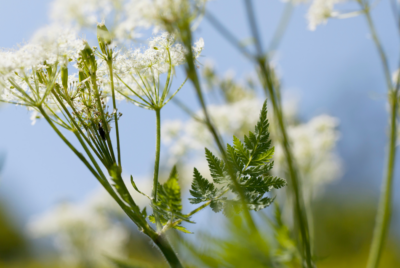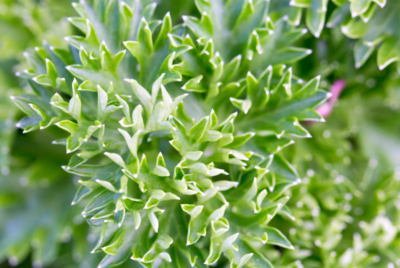Ashwagandha Tea
1. Introduction to Ashwagandha Tea
1.1. What is Ashwagandha?
Ashwagandha, also known as Withania somnifera, is a potent herb in the realm of traditional Indian Ayurvedic medicine. This ancient herb is renowned for its adaptogenic qualities, meaning it helps the body manage stress and can bring balance to various physiological processes. Ashwagandha has been used for over 3,000 years to relieve stress, increase energy levels, and improve concentration. The name ‘Ashwagandha’ itself gives a hint of its strength, translating to “the smell of the horse,” which implies that it provides the vigor and strength of a stallion. This herb is not just about managing stress; it’s a versatile plant that supports overall wellbeing, offering benefits that range from boosting brain function to improving immune health.
1.2. Overview of Ashwagandha Tea
Ashwagandha tea is crafted from the roots or sometimes the leaves of the Ashwagandha plant. This herbal brew is cherished not only for its mild, earthy flavor but also for the myriad of health benefits it offers. Drinking Ashwagandha tea is an excellent way to enjoy the adaptogenic benefits of this ancient herb. It’s a beverage that fits perfectly into any wellness routine, whether you’re looking to unwind after a stressful day, seeking to enhance your sleep quality, or aiming to bolster your body’s resilience to physical and emotional stressors. Its preparation is straightforward, involving steeping the dried Ashwagandha root or leaves in hot water, making it an accessible and natural way to boost your health.
2. The Healing Properties of Ashwagandha
2.1. Historical Use
For over 3,000 years, Ashwagandha has been a cornerstone in Ayurvedic medicine, revered for its wide range of healing properties. Ancient practitioners used it to treat various ailments, from stress and anxiety to physical weakness and inflammation. Its name, meaning “the smell of a horse,” suggests it imparts the strength and vigor of a stallion, a testament to its ability to increase energy and stamina. This historical use underscores Ashwagandha’s enduring reputation as a powerful adaptogen and natural healer, deeply rooted in the tradition of herbal medicine.
2.2. Scientific Backing
Recent scientific research supports Ashwagandha’s traditional uses, highlighting its adaptogenic properties that help the body manage stress more effectively. Studies have shown that Ashwagandha can significantly reduce cortisol levels, leading to decreased stress and anxiety. Its compounds, particularly withanolides, have been found to enhance brain function, improve sleep patterns, and boost immunity. Additionally, its anti-inflammatory and antioxidant actions contribute to cardiovascular health and may even offer protective effects against certain types of cancer. This scientific backing not only validates ancient wisdom but also positions Ashwagandha as a relevant and beneficial herb in modern health practices.
3. Different Types of Ashwagandha
3.1. Varieties and Their Unique Benefits
Ashwagandha (Withania somnifera) comes in various strains, each offering unique benefits. The primary distinction is between the wild variety, known for its robust adaptogenic properties, and cultivated varieties, which may have enhanced specific health benefits such as improved sleep or heightened stress relief. Some strains are bred for higher yields of withanolides, the active compounds believed to contribute to Ashwagandha’s therapeutic effects. These variations allow users to choose a type of Ashwagandha that best suits their health objectives, whether they’re seeking general wellness support or targeting specific issues like anxiety or immune health.
3.2. Can You Grow Different Types Together?
Yes, you can grow different types of Ashwagandha together. This practice can be beneficial as it allows for cross-pollination, potentially enhancing the genetic diversity and resilience of the plants. Growing multiple varieties can also yield a broader spectrum of withanolides, offering a wider range of health benefits from the harvest. However, it’s important to ensure that all varieties share similar growing requirements, such as soil type, water needs, and sunlight exposure, to thrive alongside one another. This approach can maximize the medicinal potential of your Ashwagandha garden.
4. The Preparation of Ashwagandha Tea
4.1. Ingredients Needed
To prepare Ashwagandha tea, you’ll need the following ingredients: dried Ashwagandha root (either in powder form or as whole roots), hot water, and optional additions for flavor such as honey, lemon, or ginger. Choosing organic Ashwagandha ensures purity and potency, enhancing the health benefits of your tea. If using powder, about one teaspoon per cup of water is standard; for whole roots, a small handful per pot will suffice. These simple ingredients combine to create a healing, nourishing beverage that harnesses the natural power of Ashwagandha.
 4.2. Step-by-Step Brewing Guide
4.2. Step-by-Step Brewing Guide
Boil Water: Start by boiling water in a kettle. For one cup of tea, about 8 ounces (240 milliliters) of water is needed.
Add Ashwagandha: If using powder, place one teaspoon of Ashwagandha powder into a tea infuser. For whole roots, a small handful will do. Then, place the infuser or roots into your cup or teapot.
Steep: Pour the boiling water over the Ashwagandha and let it steep for 10-15 minutes. The longer you steep, the stronger the flavor and therapeutic effects.
Strain and Serve: Remove the tea infuser or strain the tea to remove whole roots. Your Ashwagandha tea is now ready to enjoy.
Flavor as Desired: Optionally, add honey, lemon, or ginger to taste. These additions can enhance the flavor and offer additional health benefits.
This guide will help you create a soothing cup of Ashwagandha tea, perfect for relaxing and rejuvenating your body and mind.
5. Health Benefits of Ashwagandha Tea
5.1. Stress and Anxiety Reduction
Ashwagandha tea is renowned for its stress-relieving properties, primarily due to its adaptogenic activity that helps modulate the body’s response to stress. By regulating cortisol levels, the body’s stress hormone, it effectively reduces anxiety and promotes a sense of calm. Regular consumption can lead to significant improvements in stress and anxiety symptoms, making it a natural solution for those seeking to manage daily stressors and enhance their overall mental well-being without resorting to pharmaceuticals.
5.2. Improved Sleep Quality
One of the cherished benefits of Ashwagandha tea is its ability to improve sleep quality. Its calming effects extend to the nervous system, where it acts to promote relaxation and ease the transition into sleep. This is particularly beneficial for those with insomnia or disrupted sleep patterns. By stabilizing the body’s stress response before bedtime, Ashwagandha tea helps to enhance the quality of sleep, allowing for a more restful and rejuvenating night’s rest. This natural sleep aid is a boon for anyone looking to improve their sleep naturally, without the side effects associated with conventional sleep medications.
5.3. Boosting Immunity
Ashwagandha tea supports immune health through its potent antioxidant and anti-inflammatory properties. These characteristics help to fortify the body’s defense mechanisms against pathogens and disease. Regular intake can lead to a strengthened immune system, making the body more resilient to infections and illnesses. Additionally, its stress-reducing capabilities further contribute to immune health, as chronic stress can weaken the immune response. Incorporating Ashwagandha tea into your daily routine can be a simple yet effective strategy for enhancing your body’s natural immunity and maintaining overall health.
6. Ashwagandha for Different Conditions
Ashwagandha’s adaptogenic and healing properties make it beneficial for a wide range of conditions. Mentally, it’s been found to help with depression and anxiety by reducing cortisol levels and mimicking the neurotransmitter GABA. Physically, it supports heart health by regulating blood pressure and cholesterol levels. Its anti-inflammatory and antioxidant effects make it a natural choice for people with arthritis or chronic pain. Additionally, Ashwagandha has been used to improve thyroid function, balance blood sugar levels, and even support cancer treatment by enhancing immune response and reducing tumor growth in some studies.
Yes, Ashwagandha can help with erectile dysfunction (ED) and fertility problems in men. Research has shown that Ashwagandha may improve sexual function by enhancing testosterone levels, increasing sperm count, and improving sperm motility, making it beneficial for male fertility. Its stress-reducing properties also play a significant role, as stress is a common factor that can affect sexual performance and fertility. By lowering cortisol levels, Ashwagandha can help alleviate stress, thereby potentially reducing the impact of stress-related ED. Additionally, its antioxidant properties may improve overall reproductive health. However, while promising, these findings suggest consulting a healthcare provider for a personalized approach to treating ED or fertility issues is essential.
7. Integrating Ashwagandha Tea into Your Routine
Incorporating Ashwagandha tea into your daily routine can be a game-changer for your health and wellness. The key is consistency and timing. Drinking a cup of Ashwagandha tea in the evening can help unwind and prepare your body for a restful night’s sleep.
Alternatively, enjoying it in the morning can provide a calming yet energizing start to the day. It’s also beneficial to align the consumption with specific needs, such as before meditation for enhanced calmness or post-exercise to aid recovery.
Listening to your body and adjusting how and when you drink Ashwagandha tea can maximize its health benefits.
8. Precautions and Side Effects
While Ashwagandha tea is generally safe for most people, there are some precautions and potential side effects to be aware of. Pregnant and breastfeeding women should avoid Ashwagandha, as there’s insufficient research on its safety in these groups. People with autoimmune diseases such as rheumatoid arthritis, lupus, or Hashimoto’s thyroiditis should be cautious, as Ashwagandha can stimulate the immune system. Additionally, because Ashwagandha can lower blood sugar and blood pressure levels, those with diabetes or hypotension should consult a healthcare provider before adding it to their routine. Side effects are rare but can include stomach upset, diarrhea, and nausea, especially at high doses.
9. Comparing Ashwagandha Tea to Other Herbal Teas
Ashwagandha tea stands out among herbal teas for its unique adaptogenic properties, offering a distinct advantage in stress management and hormonal balance. Unlike green tea or chamomile, which are known for their antioxidant and calming effects respectively, Ashwagandha tea works on a systemic level to enhance resilience to stress. Its benefits are comprehensive, affecting mental, physical, and emotional health. While other herbal teas can provide specific benefits, such as digestive aid from peppermint tea or immune support from elderberry tea, Ashwagandha tea offers a broad spectrum of health improvements, making it a versatile addition to any wellness regimen.
10. Conclusion
Ashwagandha tea is more than just a beverage; it’s a centuries-old remedy packed with health benefits. From reducing stress and improving sleep to enhancing physical performance and supporting overall well-being, this herbal tea can be a valuable part of your wellness routine. Remember to enjoy it responsibly, mindful of any precautions. Embracing the natural power of Ashwagandha tea could be your first step toward a more balanced and healthy life.
FAQs
1.How often can you drink Ashwagandha tea?
Drink it daily, ideally in the evening, for stress relief and better sleep.
2. Can Ashwagandha tea help with weight loss?
Yes, by reducing stress and cortisol, it can indirectly support weight loss efforts.
3. Is Ashwagandha tea safe for everyone?
Most people, yes, but pregnant women and those with certain medical conditions should avoid it.
4. How long does it take to see benefits from drinking Ashwagandha tea?
Some feel effects in weeks, but consistent use for 2-3 months is best for notable benefits.
5. Can Ashwagandha tea be combined with other supplements?
Yes, but consult a healthcare provider to avoid interactions, especially with sedatives or thyroid medication.
 4.2. Step-by-Step Brewing Guide
4.2. Step-by-Step Brewing Guide


